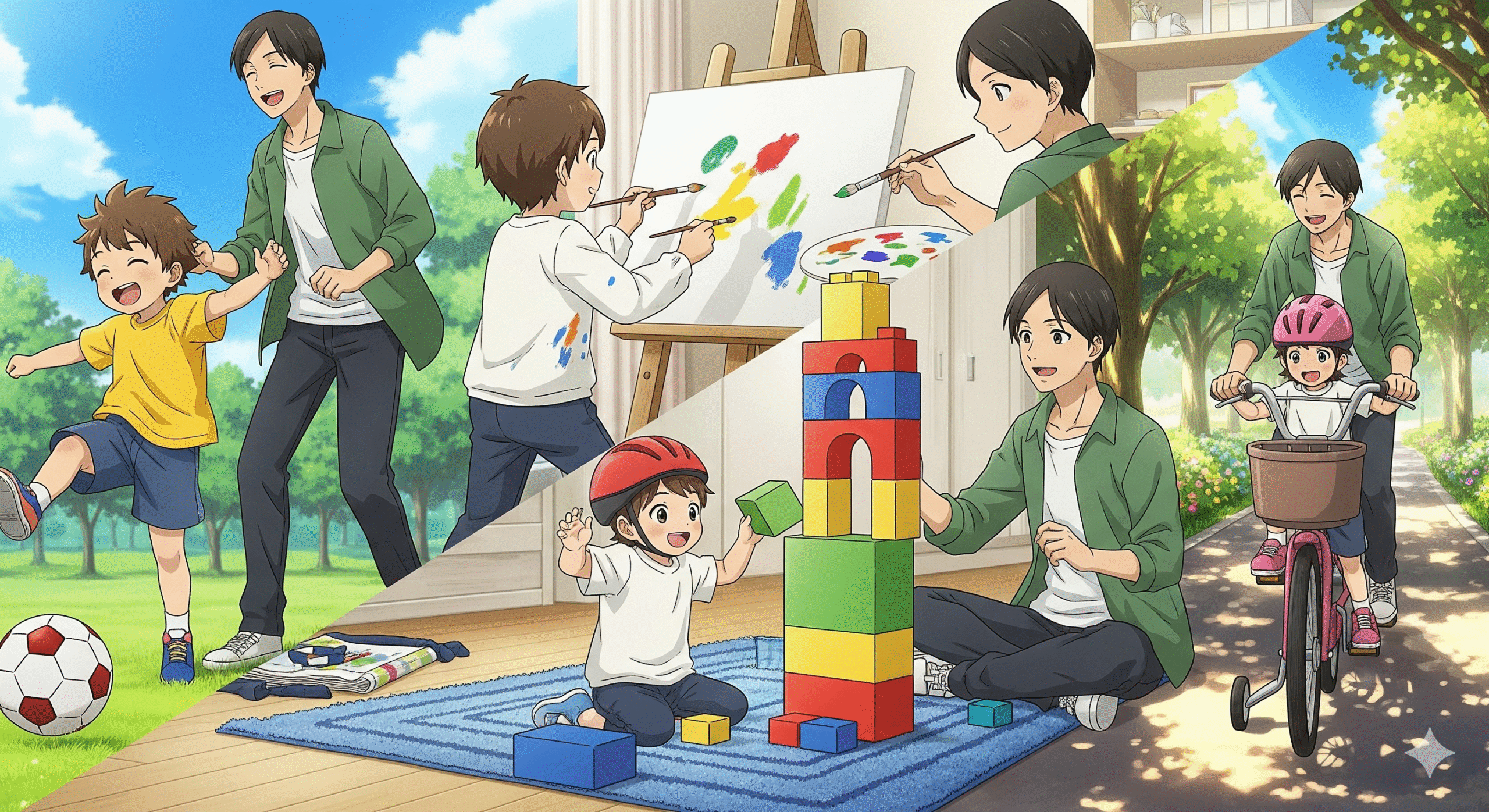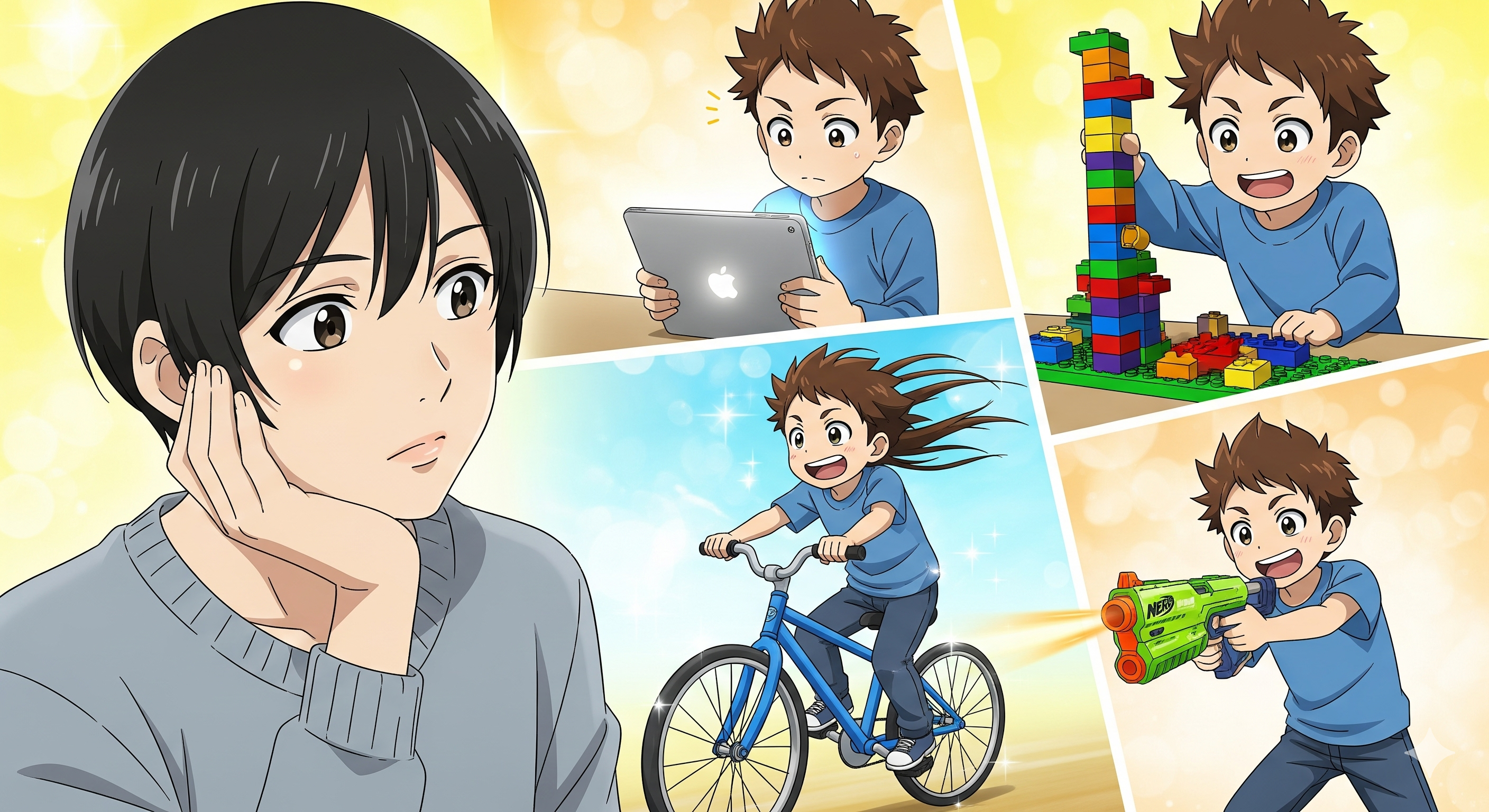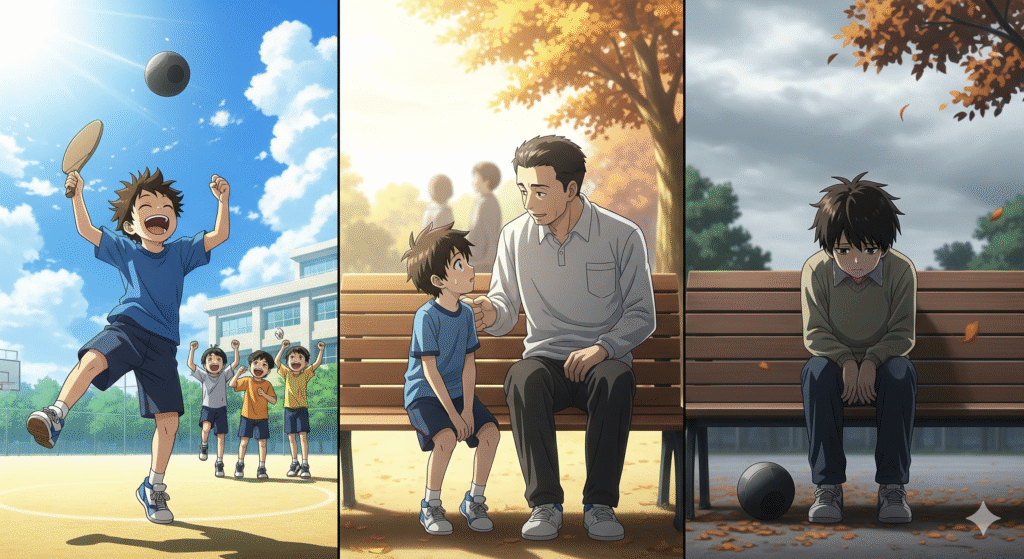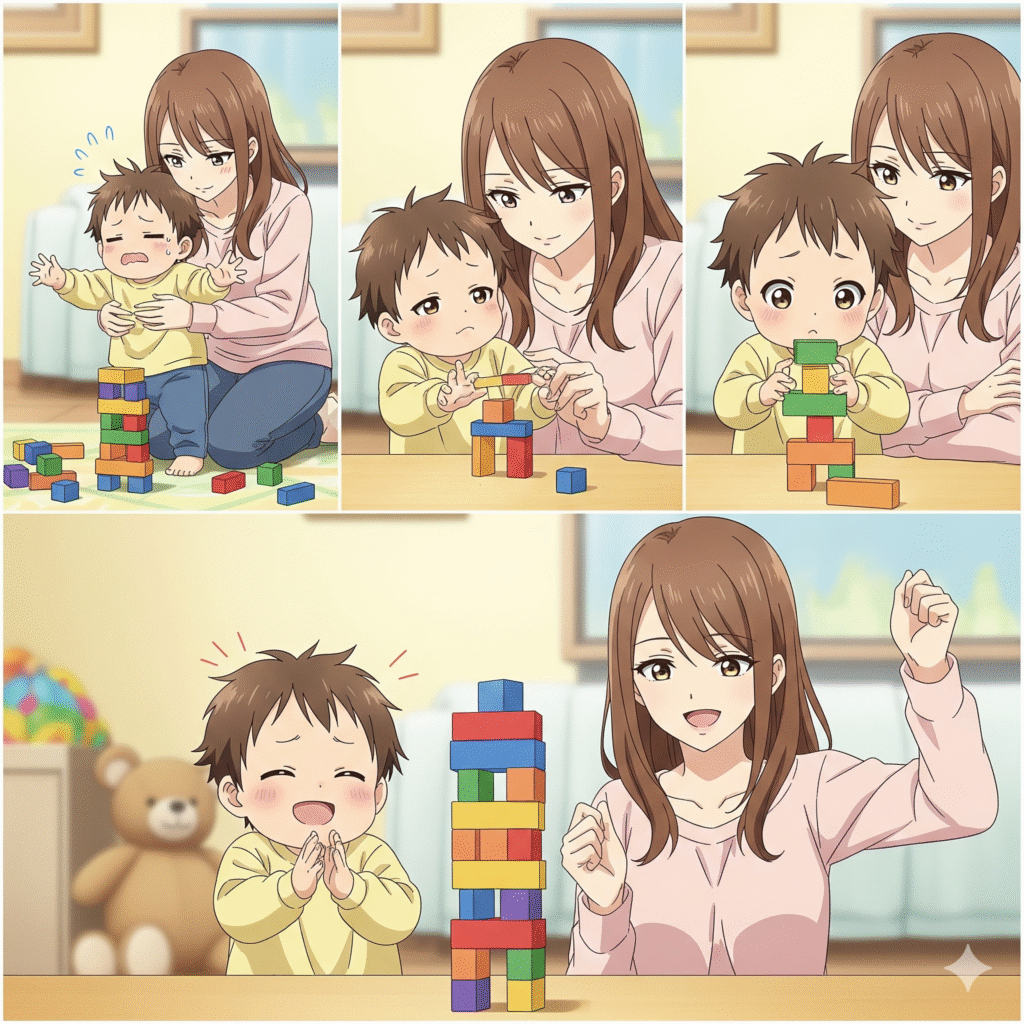Physical Address
304 North Cardinal St.
Dorchester Center, MA 02124
Physical Address
304 North Cardinal St.
Dorchester Center, MA 02124

As parents, we often dream of nurturing our children’s talents, helping them discover that one thing that truly ignites their spirit. For me, one of the biggest challenges has been trying to pinpoint what my six-year-old’s true passion might be.
Beyond the magnetic pull of the TV screen or the hypnotic glow of the tablet, activities he certainly enjoys, there are other things he likes to do, though none I would really call a passion. He’ll happily build with LEGOs, zoom around on his bike, or engage in an epic Nerf gun battle. But “likes” aren’t quite “passion,” are they? These aren’t activities he consistently asks for, time and time again, with an undeniable hunger.

When I look around, it seems like other kids have it all figured out, or at least, their parents do. You hear stories of prodigies like Tiger Woods, who apparently picked up a golf club at the tender age of four (though likely with a gentle nudge from his parents!). Other sports stars, artists, or even budding engineers building elaborate LEGO creations seem to find their calling quite young. Even in casual conversations with other parents, I’ll hear about kids already deep into tennis lessons or fiercely committed to their football teams.

Now, let me be clear, I’m definitely not looking for my child to be the next superstar athlete or a genius painter. Don’t get me wrong! My aspiration is far simpler. It would just be genuinely wonderful to help him find something, anything, that he truly loves, that he feels passionate about, and through which he can grow and develop.
A quick search of Google, shows that “Passion” is widely considered a catalyst for success, providing the intrinsic motivation to persevere through challenges, enhance productivity, and foster creativity, ultimately driving individuals toward their goals and a more fulfilling life. While not the sole ingredient for success, passion’s ability to fuel sustained effort, resilience, and innovation makes it a critical component in achieving extraordinary and lasting results.
This ongoing quest has led me to do a bit of soul-searching and research. What might be the issue? Or perhaps, more constructively, was there something I could be doing differently to help him uncover that elusive passion?
I must admit, I’m not particularly an outdoor enthusiast myself, so I don’t always drag them outside as often as I probably should. However, we do regularly enjoy bike rides together or head out to kick a ball around. It’s not that we never do things, but finding that deep, consistent engagement has been tough.
And then, one particular event really got me thinking…

So, what was this event? It revolved around a game that has become particularly popular at school: downball.
For those who don’t know what it is, you get a high-bounce ball, and it can be played amongst a number of kids who each defend their own square area on the ground. The aim is to hit the ball so it bounces down in your own square first, and then into an opponent’s square. My son had played this with his friends a few times and was really excited about it. So, to fuel this newfound interest, we got him a ball of his own so he could practice and play.
But after just a few days, the fervour died down. He didn’t mention downball anymore. He wasn’t even interested in holding the ball we’d purchased for him. It was as if the kindling of a potential passion had been completely extinguished.
Now, a child’s interest changing on a whim is nothing new, we all know that. But the speed at which this changed, and his demeanour, felt a little weird. He didn’t just stop playing, he actively avoided the topic. When we did bring it up, he would try his best to change the subject.
So, one day when we had a bit of spare time, I asked him if he wanted to play a bit of downball. Perhaps for a lack of anything else to do, he agreed, which was a good start.
We played for a bit in the yard, and it became clear that he wasn’t particularly good at it. His hand-eye coordination is perhaps a bit lacking at the moment. But that’s fine, it’s all about practice, right?
After playing for a bit longer, I decided to ask him directly why he didn’t seem to enjoy playing anymore. He um’ed and ah’ed for a moment, and then finally mumbled the reason… because he isn’t that good at it, and whenever he plays with his friends, he is the first one to be beaten.

And there it was. Because he was no good at it, he didn’t want to play. Which, when you think about it, is exactly how a kid is likely to think.
So, my dilemma was what to do next. Having played downball with him for a bit, it was easy to see that his hand-eye coordination was a bit lacking. When he would swing, he would often miss the ball, and his footwork of knowing where to stand was also all over the place.
But you could also see that he liked playing. Despite his struggles, he was always trying. He was running around trying hard to hit the ball and fetching it quickly to keep playing. So, he obviously enjoyed the act of it, just not the outcome.
And so, as his parent, it was my task to ask him the hard question. “Did you want to play more, but are you scared because you feel like you are not that good?” He admitted to it. He didn’t like it anymore because he wasn’t good at it.

This is where we had the parent-and-child talk. I explained that no one was ever good at something they do right away. Even if they are, talent alone can only take you so far. I told him that practice and persistence are what truly matter. There is a saying, “Success is 1% Inspiration and 99% Perspiration.” Inspiration and talent are important, but it’s the hard work and practice that will really get you places.
I’m not sure my son really understood the depth of it all after that talk, but it didn’t matter. Now that I knew what his concerns were, we could work together to slowly address them.
I asked him one more time, “Besides not being good at it, did you still enjoy playing downball?” The answer to that was a meek yes.
So, we made a promise to practice more together. For him to practice and learn, to try again, and most importantly, not to give up. We have practiced a few more times since we had this talk, and each time he seems tired or starts getting frustrated, I have the “hard work and practice” discussion with him again, to remind him that if he likes it, then he should practice it.
Since then, he has become a bit better at downball. Is he going to be fantastic and be able to beat all his friends? Definitely not. But at least he can keep up now and won’t despair at being no good at something. And through this process, he seems to have genuinely found something he wants to keep doing.
This whole experience was a huge learning curve for me as a parent. Here are some of the key takeaways and tips that might help you on your own journey.
1. Be a Detective of Their Behaviour Keep an eye on your child’s change in behaviour, because they often act for a reason. It was only after I noticed my son’s sudden avoidance of downball that our little investigation began. Once you know there’s an issue, you can help address it. As much as I would love for my child to come running to me with every problem, they are more likely to bottle things up. Sometimes it feels like they believe their parents are sworn enemies never to be trusted! I swear, trying to get a straight answer can be like pulling teeth.
2. Communication is Everything Talking to them is vitally important. They need to know they can tell you anything, that you are there for them, and that you will try your best to help. You might be busy, but don’t put off what a child wants to tell you, otherwise, they might eventually close themselves off. Our job is to encourage them to talk and learn to communicate.
3. Teach Them Nobody is Perfect Help them understand that everyone has to start somewhere. Whether it’s that friend at school who seems good at everything or the sports stars they see on TV, no one started out as an expert. It is hard work and persistence that will get you places. Use their own real-life examples to demonstrate this. Whether it’s their first bike fall or not being able to hit a downball properly, these moments are the perfect opportunities to help them develop the right values and approach to things.

4. Be There with Them Even if a child understands the principle of hard work, as parents, we should be there with them to help them practice. For me, it was playing downball together. When they get frustrated (and they will!), that is where a parent can encourage them, provide some helpful insights, or just be there to show you care. Your presence means a lot to them.
5. Track the Progress (and Celebrate It!) For us, the measure of progress was simple: how many times could he hit the ball without missing? Initially, he could hit maybe one ball out of three. Over time, that improved to one out of two, and eventually, he could hit most of them consecutively. He isn’t going to win any awards, but when we showed him the tracked progress and how much he had improved, he was absolutely beaming. Visually being able to see that progress really helped motivate him to keep going.
6. The Ripple Effect of a Single Success As a result of his downball practice, his hand-eye coordination has gotten a lot better. And this had a ripple effect. A lot of the outdoor sports he didn’t use to like, like soccer or cricket, he was suddenly slightly better at. Previously, he wouldn’t even bother, but recently he has been asking more about them and willing to experiment more.
It might still take some time for him to find his one true “passion,” but he is now much more willing to give things a go. And it is only through trying different things that he will find out what he likes. My job is to keep an eye out for those sparks of interest, help him explore the ones he really enjoys, and work on them together so that he can find something he can truly be passionate about.
As always, feel free to share your own experience. I would love to hear some stories about how your kids found their own passion!